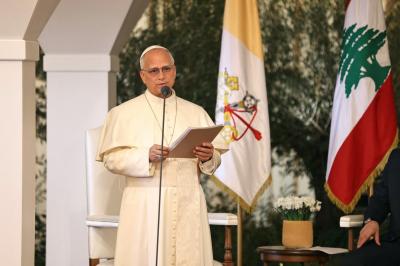After months of delay, most Lebanese television networks have finally yielded to a Cabinet decision requiring them to pay overdue fees to the Ministry of Information. Some stations have opted to pay in installments but nonetheless pledged full compliance. The move comes two weeks after Information Minister Paul Morcos raised the issue in a government session, flagging several outlets for failing to meet their obligations, which triggered a gradual settlement process. According to Abdel Hadi Mahfouz, head of the National Audiovisual Media Council, a number of outlets — including the Lebanese Broadcasting Corporation International (LBCI) and MTV — have already begun making payments. Others are still negotiating payment mechanisms suited to their fragile finances, strained by the collapse of the advertising market and the broader economic meltdown since 2019.
Impact on State Finances
The fees collected from broadcasters are not merely licensing charges or rental costs for frequencies; they represent vital revenues for the state treasury. In the midst of Lebanon’s crippling financial crisis, the prolonged refusal of channels to pay meant depriving the treasury of funds that, however modest, could have helped reduce the deficit. Economist Dr. George Nader told Al Safa News: “Delays by media institutions in paying what they owe deny the state resources it desperately needs. Turning a blind eye for years created an environment of disorder and unfair advantage, where some outlets enjoyed privileges at the expense of public funds. Forcing all players to pay is an important corrective step, but it requires strict follow-up mechanisms to ensure continuity.”
Investment Accounts and Financial Transparency
Beyond dues, a thorny issue persists around broadcasters’ investment accounts. Many outlets continue to withhold transparent disclosures about their funding sources, raising concerns over the legitimacy of some revenues and the independence of the sector itself. The government has tasked the National Audiovisual Media Council, in cooperation with specialized auditing firms, to scrutinize these accounts — a step that could expose the scale of irregularities within the industry. Yet financial opacity is not the only obstacle. Political alignments continue to shield certain outlets from accountability, while the widespread activity of unregulated cable operators outside the legal framework further deprives licensed broadcasters of rightful revenues.
Toward a New Media Vision
Amid these challenges, calls are mounting for a comprehensive national media vision. This would involve updating outdated laws, reassessing the size of imposed fees, and opening the door to structured Arab and international partnerships that could provide sustainable funding for Lebanese media.
A First Step, But Not Enough
In the end, the Cabinet’s decision to compel television stations to pay their dues is a much-needed reform measure. But unless accompanied by deeper structural reforms to secure transparency, boost state revenues, and safeguard the continuity of the media industry, the measure risks remaining a temporary fix in a sector plagued by recurring crises.
Please post your comments on:
[email protected]
 Politics
Politics













